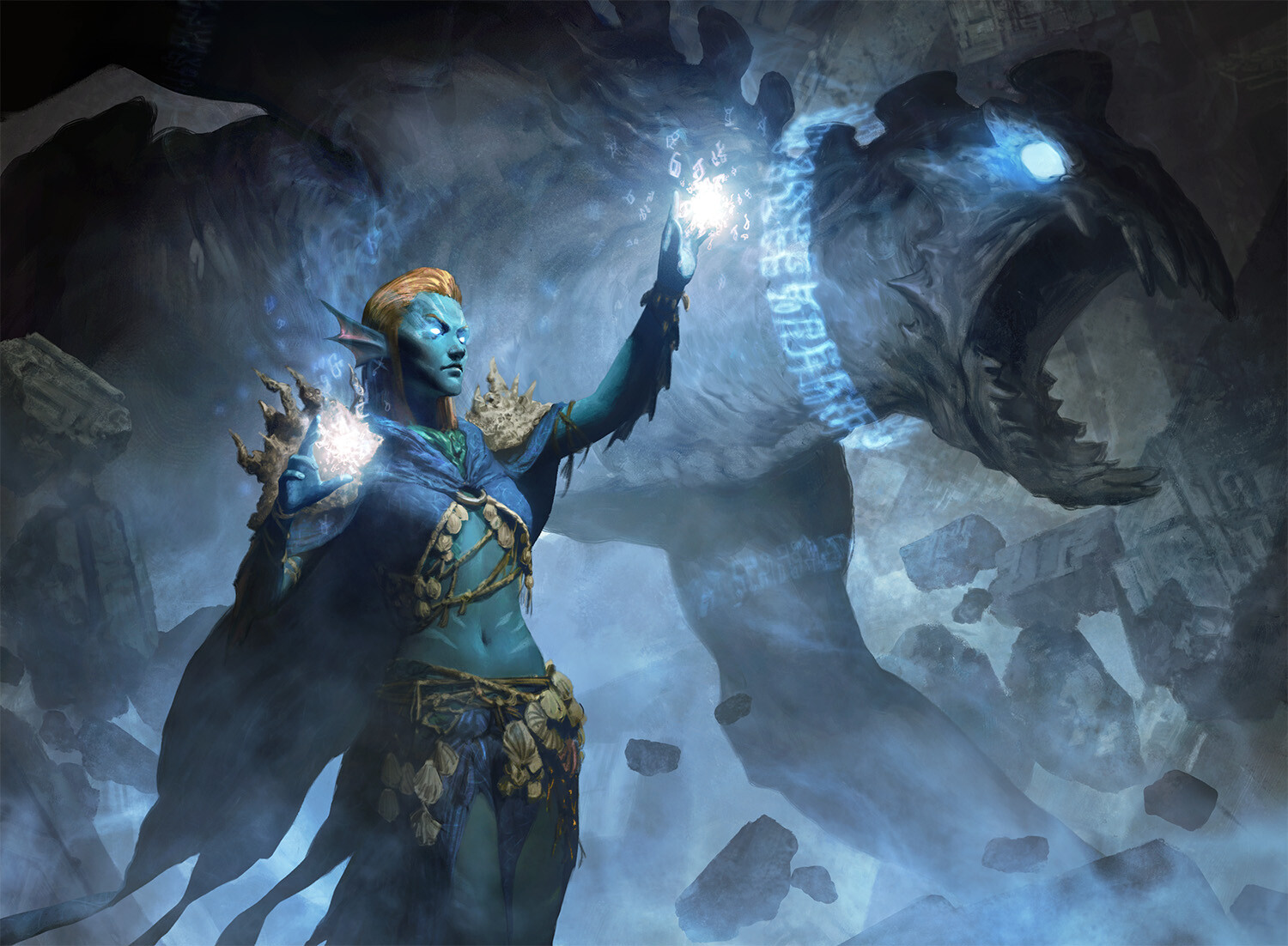

Conditions
Conditions alter a creature's capability in a variety of ways and can arise as a result of a spell, a class feature, a monster's attack, or other effect.
Most conditions, such as blinded, are impairments, but a few, such as invisible, can be advantageous.
A condition lasts either until it is countered (the prone condition is countered by standing up, for example) or for a duration specified by the effect that imposed the condition.
If multiple effects impose the same condition, each instance has its own duration, and some conditions may have cumulative effects. All in all, a creature has a condition or doesn't.
If an effect forces a creature to suffer from another condition, that effect isn't made immune from other features that negate that condition (typically because an effect that imposes a creature to suffer from it is quantitatively more powerful).
The following definitions specify what happens to a creature while it is subjected to a condition.
Some of the following Conditions are changed from their original versions in the SRD, including: Frightened.
Blinded
- A blinded creature can't see and automatically fails any ability check that requires sight.
- Attack rolls against the creature have advantage as long as the attacker can see the blinded creature, and the creature's attack rolls have disadvantage since it can't see. (TLDR: two blinded creatures only have disadvantage on attack rolls against each other)
Charmed
- A charmed creature can't attack the charmer or target the charmer with harmful abilities or effects.
- The charmer has advantage on any ability check to interact socially with the creature.
Crying
Blinded-Lite
- A crying creature's attack rolls have disadvantage if it relies on eyesight.
Deafened
- A deafened creature can't hear and automatically fails any ability check that requires hearing.
Dazed
- A dazed creature can't take reactions.
- On its turn, a dazed creature can take either an action or a bonus action, but not both.
Dominated
Charmed-Pro / Mind Control
- The dominated creature suffers from the Charmed condition, and is unable to take actions the dominater doesn't allow it to do.
- The dominated creature is able to take reactions, but it costs the dominator's reaction as well.
- The dominated creature is forced to do commands the dominator issues to it (no action required). If it completes the order and doesn't receive further direction, it defends and preserves itself to the best of its ability.
- Typically, a dominated creature can repeat the save to counter the dominated condition if (a) the dominator or its allies attacks it or (b) the dominated creature is on a different plane of existence from the dominator or (c) the dominated creature spends 24 hours and is at least 1 mile away from the dominator.
- Atypically, the dominator can end this condition as a bonus action
- Atypically, a dominated creature shares a telepathic link between it and the dominater.
Doomed
Negative-Energy Manifest
- The doomed creature subtracts 1d4 from the result of any rolled healing (spells like healing word or natural like Hit Dice) it receives. Doomed is typically a cumulative effect, which increases the die size by one: the d4 becomes a d6, the d6 becomes a d8, and so on until the die becomes a d20.
- Atypically, a doomed creature's body disintegrates into dust when they are killed.
- Typically, a doomed creature counters the doomed condition by either (a) dying or (b) becoming afflicted by the positive version of this condition (Vigorous) which counters both conditions.
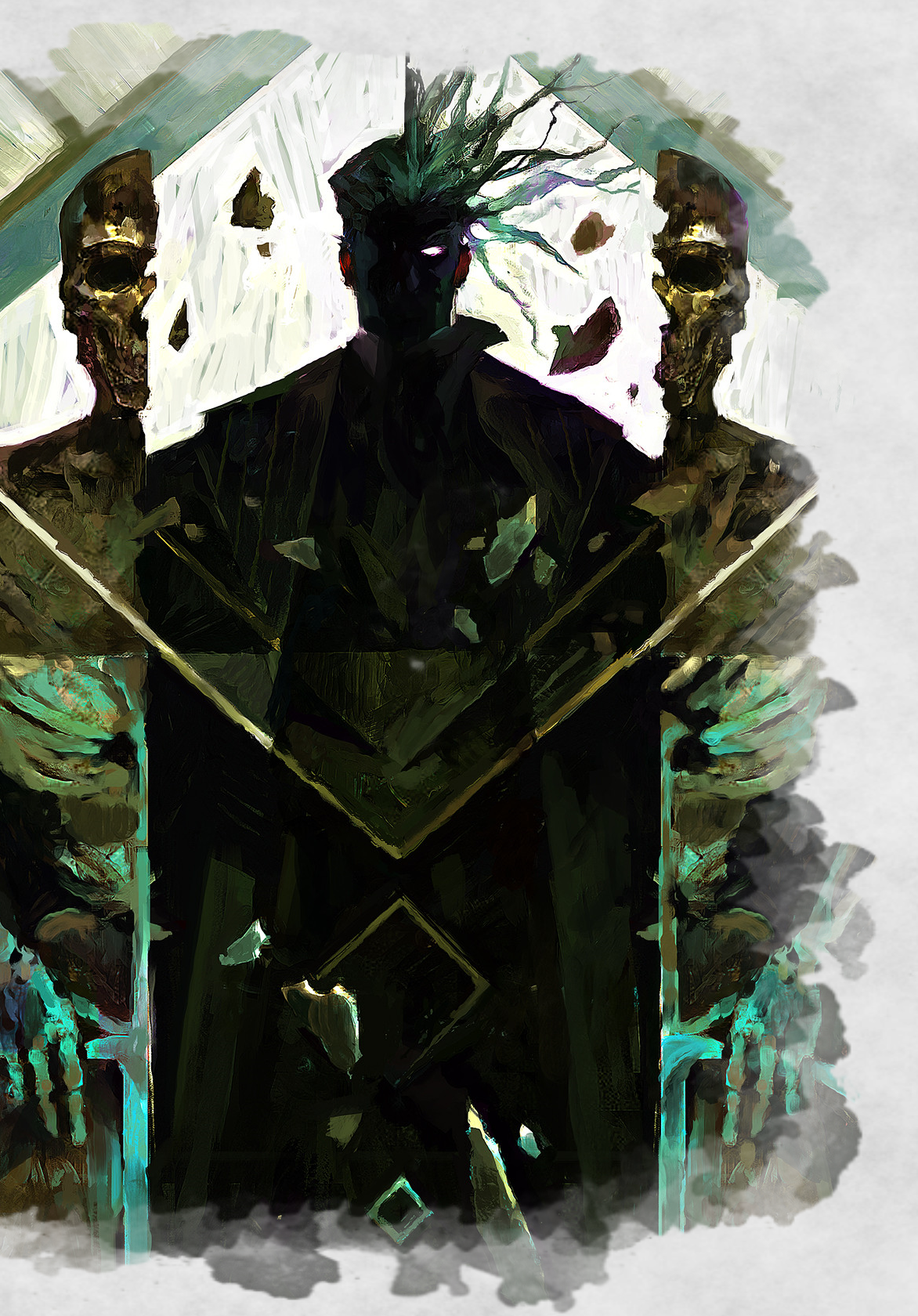
D.O.T. Damage over Time
- Typically, a creature with the DOT condition takes damage at the start of its turn.
- Atypically, a creature can end the condiiton by either (a) taking an action to end the condition through some means (quenching a fire on themselves, grounding themselves from electric currents, etc.) or (b) saving against an effect that would continue to activate the condition at the start of their turns.
Dread
Frightened-Plus / Fantasy Super-Depression
- The dreaded creature suffers from the Frightened condition.
- The dreaded creature subtracts 1d4 from the result of any Attack Roll, Ability Check, or Saving Throw it makes.
- Atypically, a dreaded creature suffers from the Crying condition and the Incapacitated condition while the source of its dread is within Line of Sight.
- Typically, a creature with dread can repeat the save to counter the dreaded condition by either (a) acquiring therapy of about a downtime of one week or (b) dying or (c) the dreaded creature spends an action to shake the condition if a loved one of the dreaded creature is in active danger presented by the source of its dread.
Drunk
- A drunk creature suffers from 1 Level of the Slowed condition.
- A drunk creature subtracts 1d4 from the result of any Attack Roll or Ability Check it makes. If it is making Melee Attacks, the result of the d4 also increases its critical thresholds of those melee attacks, causing the potential to critically miss on the d20 to a 1 + the result (to a minimum of 2, but a maximum of 5), but also causing the potential to critically hit on the d20 to 20 - the result (to a minimum of 19, but a maximum of 16).
- A drunk creature that critically misses its initial target has a random chance to accidentally strike a different target within reach of itself, including itself if there are no other targets.
- Typically, a drunk creature counters the drunk condition by (a) taking damage or (b) taking a long rest and becoming afflicted by the Hungover condition afterwards.
Exhaustion
Some special abilities and environmental Hazards, such as starvation and the long-term Effects of freezing or scorching temperatures, can lead to a special condition called exhaustion. Exhaustion is measured in six levels. An Effect can give a creature one or more levels of exhaustion, as specified in the effect’s description.
| Level | Effect |
|---|---|
| 1 | Disadvantage on Ability Checks |
| 2 | Speed Halved |
| 3 | Disadvantage on Attack Rolls and Saving Throws |
| 4 | Hit Point Maximum Halved |
| 5 | Speed reduced to 0 |
| 6 | DEATH |
If an already exhausted creature suffers another effect that causes exhaustion, its current level of exhaustion increases by the amount specified in the effect’s description.
A creature suffers the Effect of its current level of exhaustion as well as all lower levels. For example, a creature suffering level 2 exhaustion has its speed halved and has disadvantage on Ability Checks.
An effect that removes exhaustion reduces its level as specified in the effect’s description, with all exhaustion effects ending if a creature’s exhaustion level is reduced below 1.
Finishing a Long Rest reduces a creature’s exhaustion level by 1, provided that the creature has also ingested some food and drink. Also, being raised from the dead reduces a creature's exhaustion level by 1.
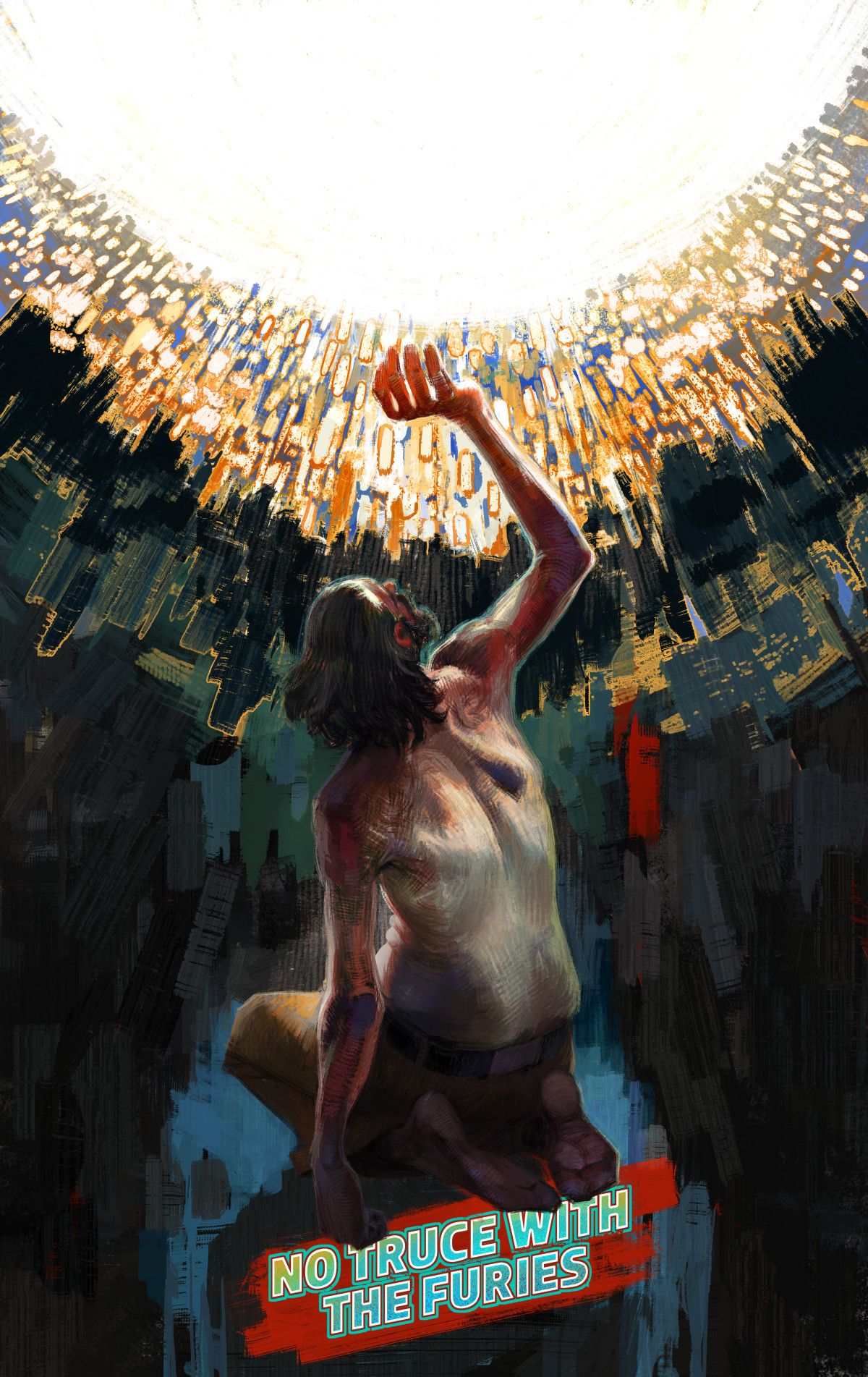
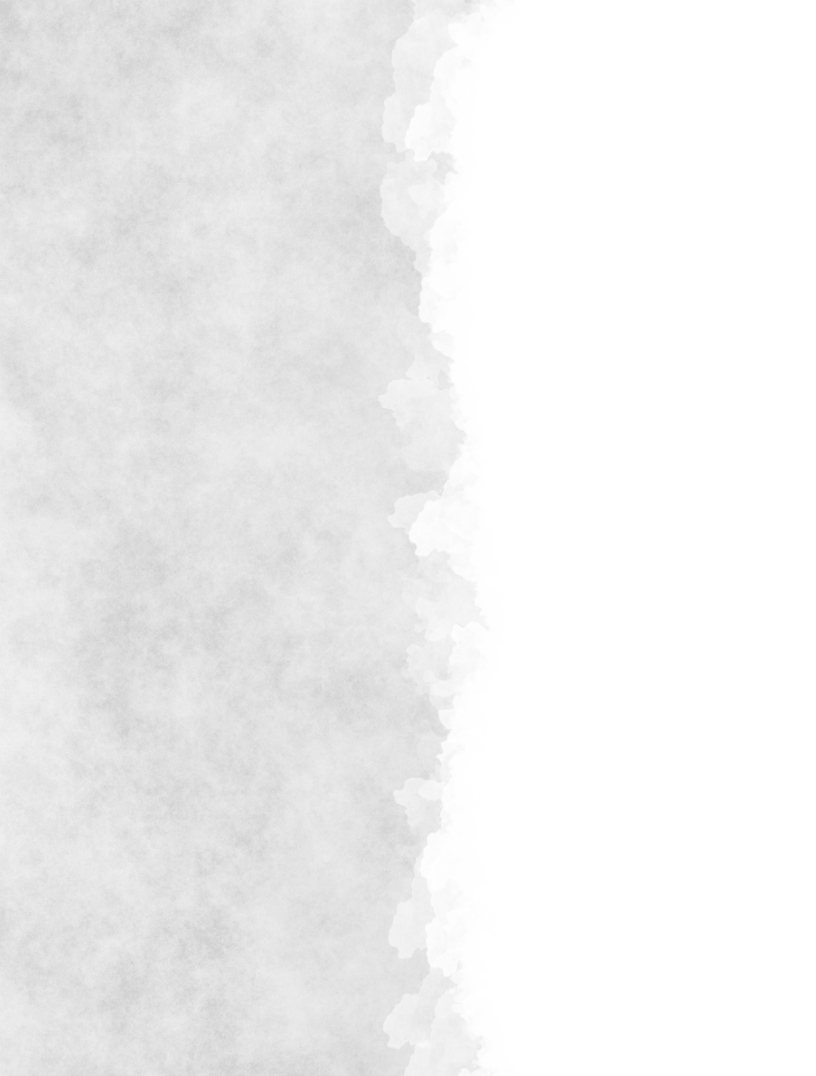
Frightened
- A frightened creature has disadvantage on Ability Checks and Attack Rolls.
- The creature can't willingly move closer to the source of its fear.
Frozen Condition
- A frozen creature can't take reactions.
- The frozen creature suffers from the Restrained condition while frozen.
- On its turn it, a frozen creature can only spend an Action on each of their turns to make a Strength check to break free of its frozened condition (the DC of which typically is either 10 or the spellcaster's save DC if the condition was inflicted from a spell).
- While frozen, the creature is vulnerable to bludgeoning damage. If they take bludgeoning or fire damage, they are no longer Frozen.
Grappled
- A grappled creature’s speed becomes 0, and it can’t benefit from any bonus to its speed.
- The condition ends if the Grappler is incapacitated.
- The condition also ends if an Effect removes the grappled creature from the reach of the Grappler or Grappling Effect, such as when a creature is hurled away by the thunderwave spell.
Hungover
- A hungover creature has disadvantage on Wisdom (Perception) checks to see or hear.
- A hungover creature subtracts 1d4 from any Dexterity check or Saving Throw it makes.
- Typically, a hungover creature counters the Hungover condition by (a) drinking water or (b) taking a short rest after at least 6 hours of activity or (c) taking magnesium supplements.
Incapacitated
- An incapacitated creature can't take Actions or Reactions.
Invisible
- An invisible creature is impossible to see without the aid of magic or a special sense. For the Purpose of Hiding, the creature is heavily obscured. The creature’s Location can be detected by any noise it makes or any tracks it leaves.
- Attack rolls against the creature have disadvantage, and the creature’s Attack rolls have advantage.
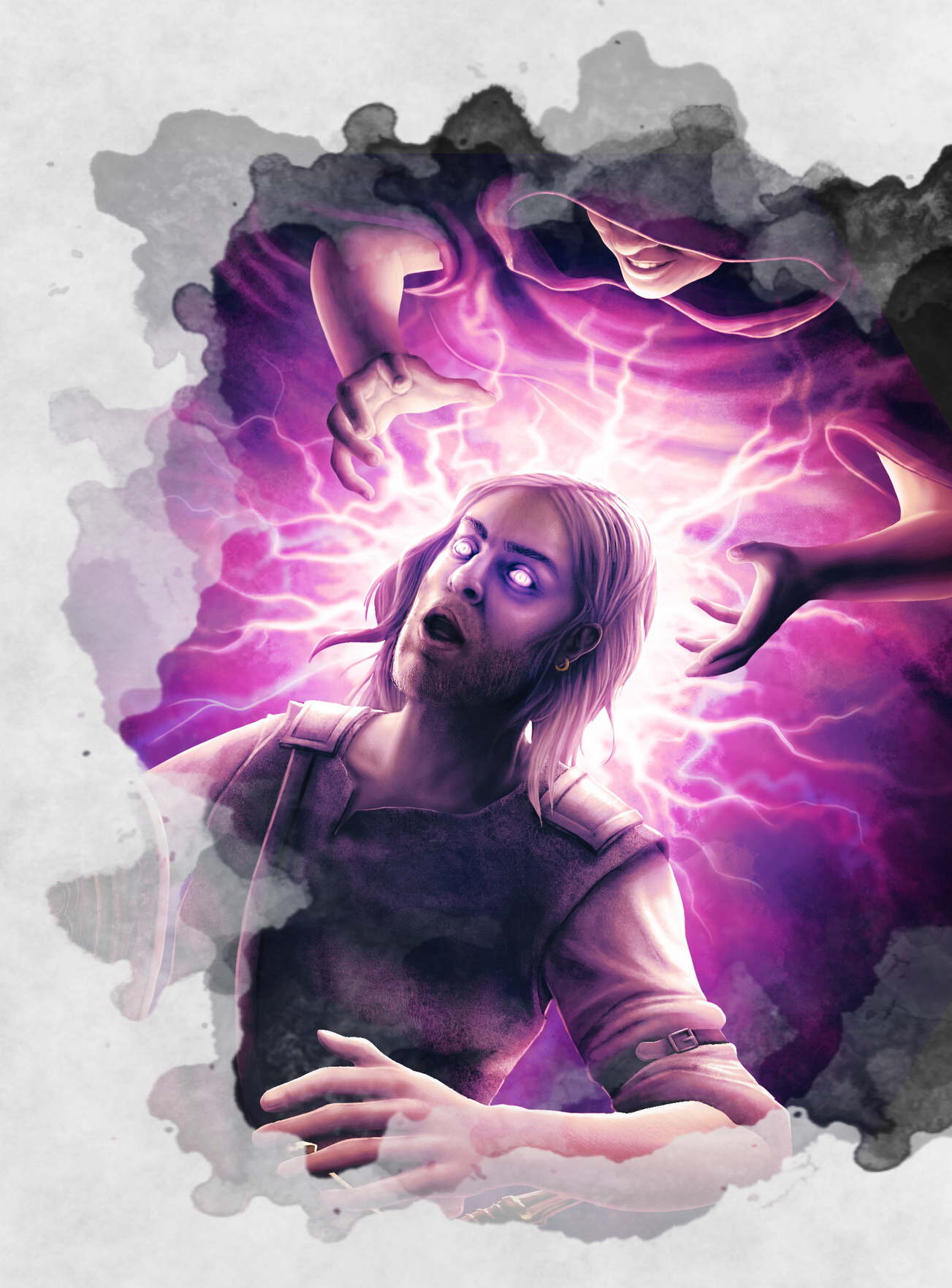
Irradiated
Radiation's Effects
- An irradiated creature can't regain Hit Points.
- Typically, an irradiated creature's Max Hit Points is reduced by any amount of Nuclear damage they take, most commonly from the same source they become afflicted by this condition from, such as a spell.
- An irradiated creature who becomes afflicted with irradiation again from a different source gains a Level of Exhaustion instead of becoming irradiated (since it's already irradiated).
Magnetized
Physical Attraction to Metal
- A mangetized creature that is wearing a suit of metal armor suffers from the restrained condition (this version of Restrained also forces the creature to have disadvantage on Strength saving throws as well).
- Metallic objects within 10 feet of the magnetized creature are pulled towards it and become stuck to it, as do any metal weapon, ammunition, or object that isn't secured or being worn or held.
- Any ranged attack made within 10 feet or against a target within 10 feet of the magnetized creature that uses ammunition made wholly or partly from metal has disadvantage on the attack roll: if the attack misses, the ammunition becomes stuck to the magnetized creature. If the attack misses but could hit the magnetized creature's AC, treat the attack roll as if it had hit the magnetized creature instead, and deal damage for them accordingly.
- Any attack against the weapon becomes stuck to the creature after impact. A stuck weapon can be removed by using its action to make a successful Strength (Athletics) check (DC 15 or the spellcaster's Spell Save DC if it originated from a spell effect) .
Memory-Less
Memory-Loss / Amnesia
- A memory-lessed creature atypically lacks memories, information, or proficiencies it may have previously had, whether (a) stolen from them and unrecoverable by any means other than taking them back from the stealer or (b) suppressed and can be successfully coaxed from their brain with familiar targets attempting to help the creature remember, prompting another attempt at an Intelligence saving throw against the effect that caused this condition, ending it on a success.
- Typically, a memory-less creature must roll a d4 and subtract the number from any Ability Check or Saving Throw it makes. Memory-Loss is typically a cumulative effect, which increases the die size by one: the d4 becomes a d6, the d6 becomes a d8, and so on until the die becomes a d20.
- Atypically, a memory-less creature cannot be targeted by spells that would gather information from it, such as Speak with Dead.
- Atypically, a memory-less creature cannot be raised / resurrected from the dead, as the soul would have no reason to return to life.
Nauseated
Mix of Poison-Lite + Incapacitated
- A nauseated creature is forced to spend its action retching and reeling.
- A nauseated creature is unable to ingest anything, such as potions.
- Atypically, a nauseated creature can repeat the save to counter the nauseated condition at the end of its turns in combat.
Paralyzed
- A paralyzed creature is incapacitated (see the condition) and can’t move or speak.
- The creature automatically fails Strength and Dexterity Saving Throws.
- Attack rolls against the creature have advantage.
- Any Attack that hits the creature is a critical hit if the attacker is within 5 feet of the creature.
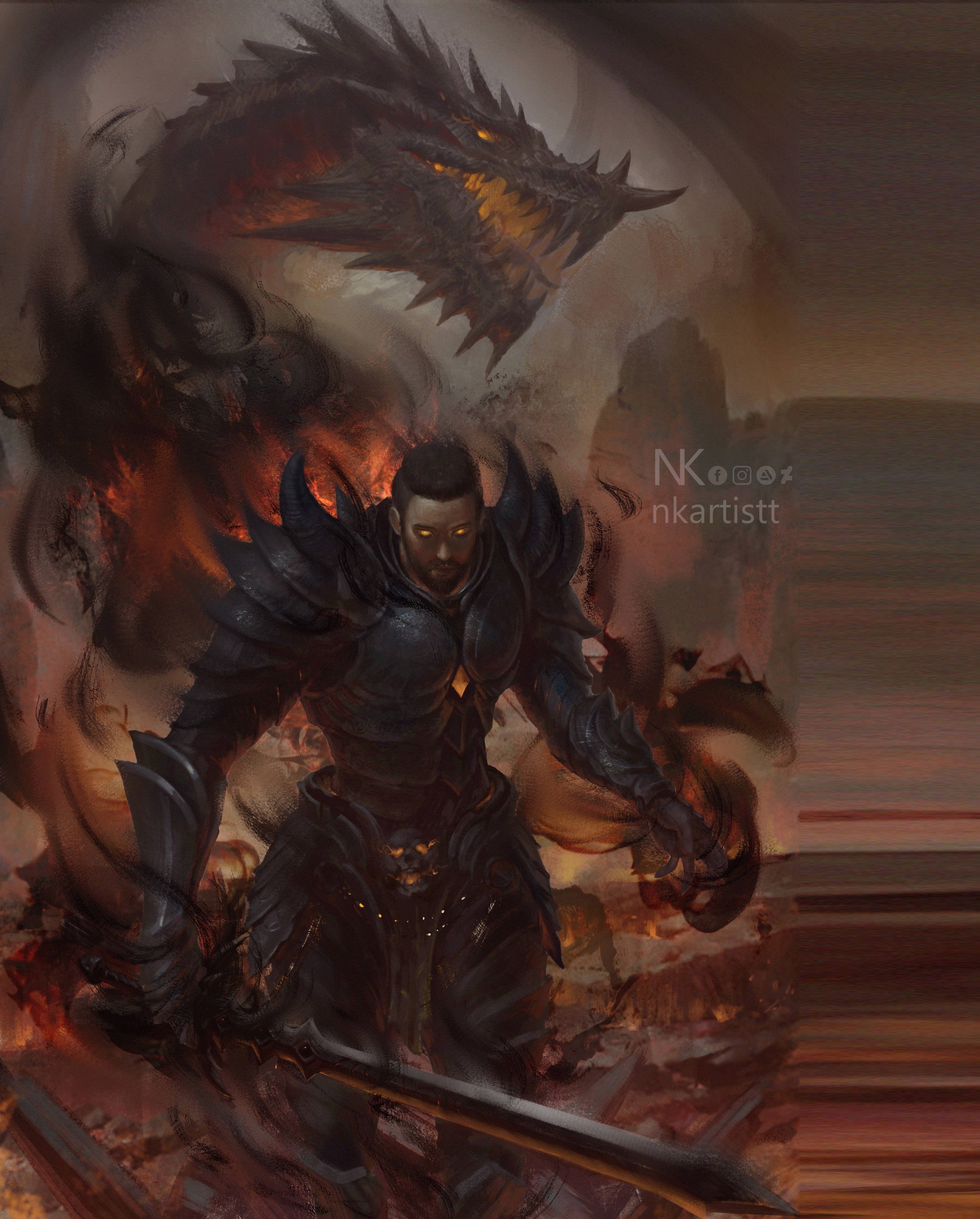

Petrified
- A petrified creature is transformed, along with any nonmagical object it is wearing or carrying, into a solid inanimate substance (usually stone). Its weight increases by a factor of ten, and it ceases aging.
- The creature is incapacitated (see the condition), can’t move or speak, and is unaware of its surroundings.
- Attack rolls against the creature have advantage.
- The creature automatically fails Strength and Dexterity Saving Throws.
- The creature has Resistance to all damage.
- The creature is immune to poison and disease, although a poison or disease already in its system is suspended, not neutralized.
Poisoned
- A poisoned creature has disadvantage on Attack rolls and Ability Checks.
Possessed
Soul-Anchored / Haunted
- A possessed creature loses control of their body, but the creature isn't deprived of its awareness.
- Typically, the possessor of the possessed creature can't be targeted by any attack, spell, or other effect, except ones that turn their creature type (undead, fiend, etc.), and it retains its alignment, Intelligence, Wisdom, Charisma, and immunity to being charmed and frightened. It otherwise uses the possessed target's statistics, but doesn't gain access to the target's knowledge, class features, or proficiencies.
- Typically, the possession lasts until its countered by either (a) the possessed creature drops to 0 hit points or (b) the possessor is turned or forced out by an effect like dispel evil or good. The possessor reappears in an unoccupied space within 5 feet of the body. The possessed creature is immune to the Possessed condition of that possessor's ability for 24 hours.
- Atypically, the possessor can end the Possessed condition on the possessed creature as a bonus action.
Prone
- A prone creature’s only Movement option is to crawl, unless it stands up and thereby ends the condition.
- The creature has disadvantage on Attack rolls.
- An Attack roll against the creature has advantage if the attacker is within 5 feet of the creature. Otherwise, the Attack roll has disadvantage.
Restrained
- A restrained creature’s speed becomes 0, and it can’t benefit from any bonus to its speed.
- Attack rolls against the creature have advantage, and the creature’s Attack rolls have disadvantage.
- The creature has disadvantage on Dexterity Saving Throws.
Stinky
Stench / Stank Aura
- A stinky creature becomes unable to smell or benefit from traits that require smell to grant their benefits.
- A stinky creature emanates a stench out to 5 feet.
- Atypically, creatures who start their turn within 5 feet of the stinky creature (including the itself) must succeed on a saving throw or become poisoned until the start of the stinky creature's next turn. On a successful saving throw, the creature cannot be poisoned by this effect for 1 hour.
- Creatures that don't need to breathe are typically immune to this Condition.
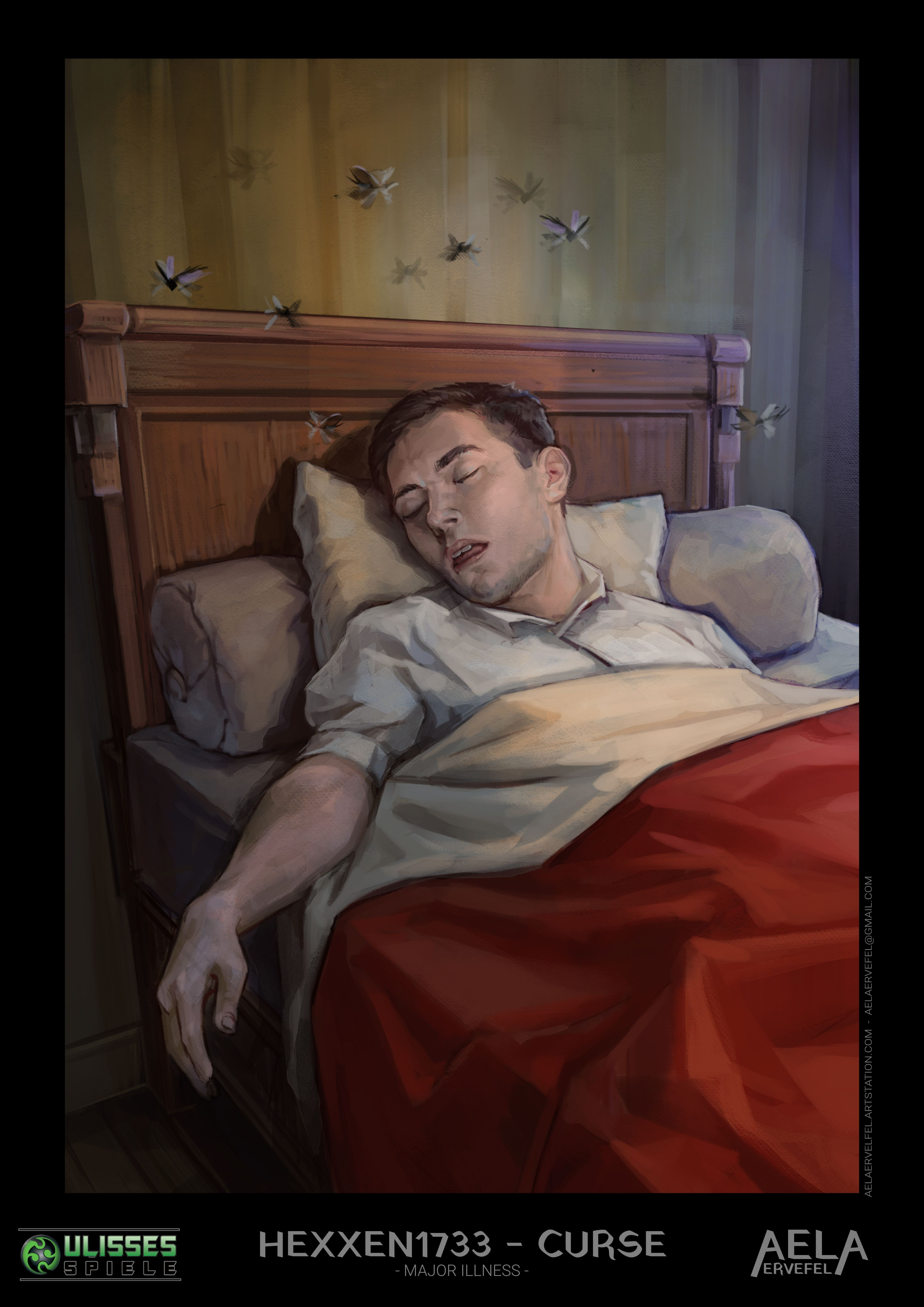

Sluggish
Some abilities, effects, and hazards can lead to a special condition called sluggish. Sluggish is measured in four levels. An effect can give a creature one or more levels of sluggish, as specified in the effect’s description.
| Level | Effect |
|---|---|
| 1 | Speed is reduced by 10 feet |
| 2 | Speed is reduced by 20 feet |
| 3 | Speed is reduced by 30 feet |
| 4 | Speed is reduced to 0, and can't benefit from any bonus to speed |
If an already sluggish creature suffers from another effect that causes it to be sluggish, its current slowed level increases by the amount specified in the effect's description.
An effect that removes sluggish reduces its level as specified in the effect's description, with all sluggish effects ending if a creature's sluggish level is reduced below 1.
Stunned
- A stunned creature is incapacitated (see the condition), can’t move, and can speak only falteringly.
- The creature automatically fails Strength and Dexterity Saving Throws.
- Attack rolls against the creature have advantage.
Vigorous
Positive-Energy Manifest
- The vigorous creature adds 1d4 to the result of any rolled healing (spells like cure wounds or natural like Hit Dice) it receives.
- Typically, a vigorous creature is also immune to the Frightened condition.
Unconscious
- An unconscious creature is incapacitated (see the condition), can’t move or speak, and is unaware of its surroundings
- The creature drops whatever it’s holding and falls prone.
- The creature automatically fails Strength and Dexterity Saving Throws.
- Attack rolls against the creature have advantage.
- Any Attack that hits the creature is a critical hit if the attacker is within 5 feet of the creature.